Where Women are Respected, Gods Rejoice
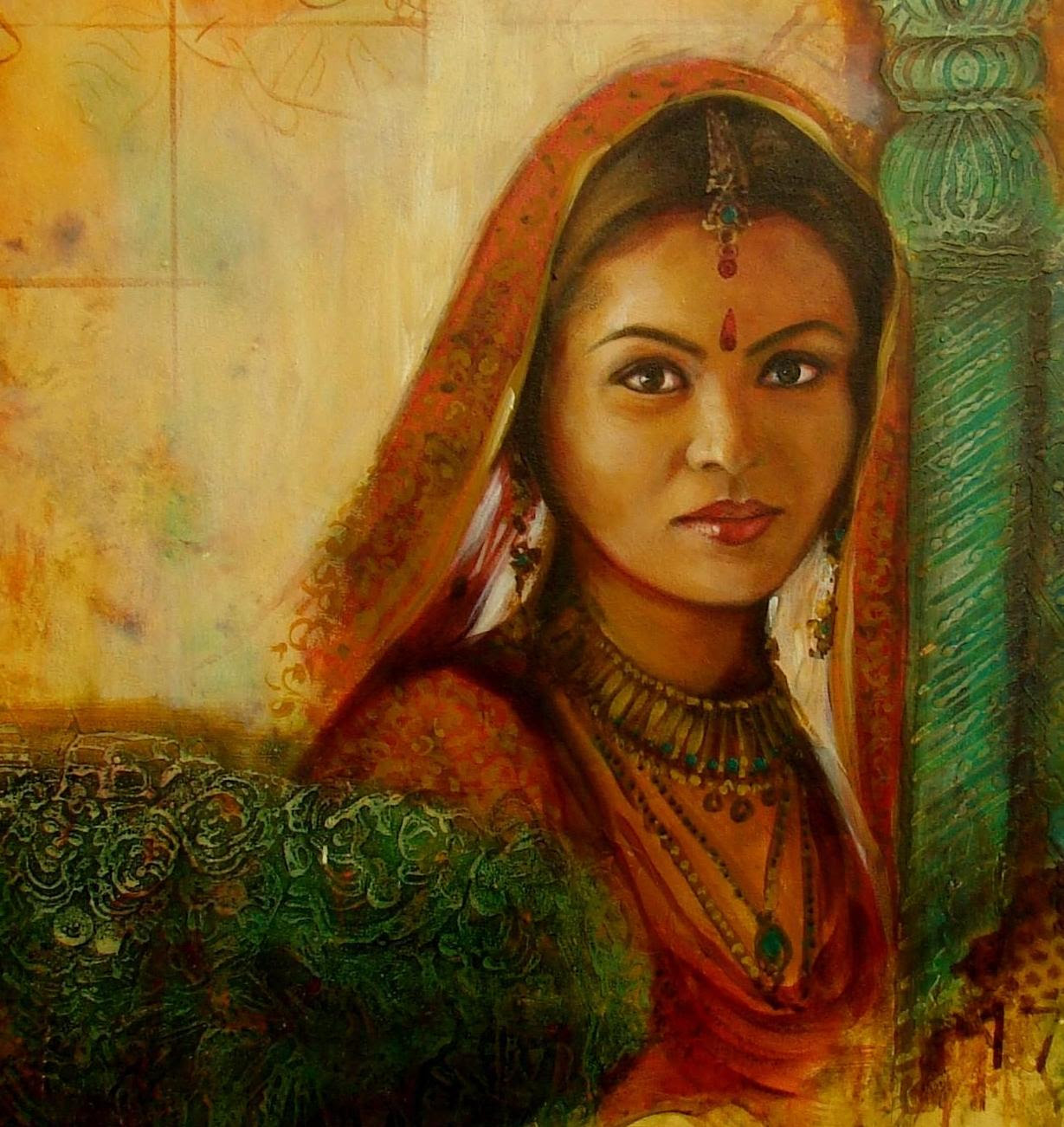
International Women’s Day in 2015 is the day to remember the importance and significance of the contribution of women to the humanity, the role they have played historically and are playing in the modern society, how they have preserve the family, the multiple roles they have played as reflected in the various scriptures, and how society will be enriched by their strength, patience, tolerance and endurance. The specific theme of the International Women's Day is "Inspiring Change". It aims to influence and strengthen the international community's commitment to put an end to violence against women. It intends to introduce a positive change to balance the status of women and men in an unequal world.
The Indian philosophers have always argued that where women are respected, there Gods rejoiced. In that society, cultural values have blossomed to higher levels, the seeds of divinity sprouted, freedom blossomed and equal opportunities flourished. Hindu religion is so unique that many female rishis have written part of the ancient scriptures such as Vedas. Poetesses such as Visvara, Lopamudra, Ghosha, Romasa, Sikaata, Apala, Nivavari and others composed nearly twenty hymns in Rig Veda. Later mother and motherhood are so respected and revered; Hindu religion adopted the worship of female figures as Goddesses. Goddesses Lakshmi, Saraswati, Parvati, Lalitha, Rajarajeswari, Amba, and many manifestations are worshipped. Women had always played vital role in the cultural, social and intellectual evolution of Hindu civilization.
Recent days we witnessed, experienced, observed and read about the issues affecting women with respect to rape, violence, molestation, deterioration of morals, revealing dresses, drinking, living together, working at odd hours, gender inequality, domestic violence, and so on. Every Indian should look back at the history of their culture, learn from it, transmit them to the future generations, imbibe them, and enrich the lives of the humanity if we have to live in peace and harmony with clearly defined responsibilities for each individual. We need to look back and trace the roots to chart out the future.
Pranab Mukkerjee, the President of India observed that “it is only appropriate that we should remind ourselves that the empowerment of women and their equality, liberty and dignity are not a distant goal or fond aspiration of the women of our country. It is one of their sacred rights.” He said that the country must make required efforts “to remove the structural and institutional barriers that inhibit the economic and social transformation of women in India”.
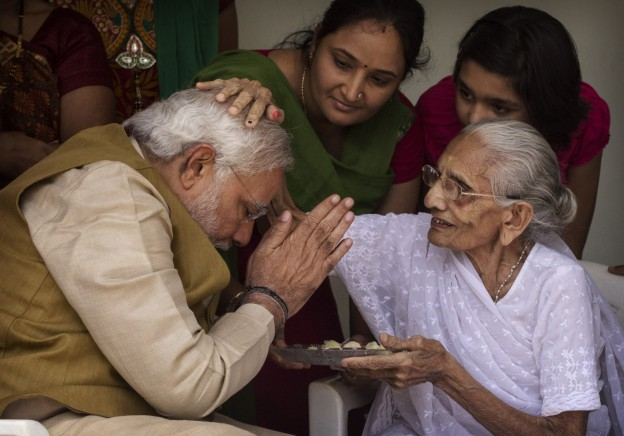 Narendra Modi, the Prime Minister of India stated that "I salute the indomitable courage and stellar achievements of women. Today, we renew our pledge to make women an equal and integral part of our development journey," he said in a statement.”
Narendra Modi, the Prime Minister of India stated that "I salute the indomitable courage and stellar achievements of women. Today, we renew our pledge to make women an equal and integral part of our development journey," he said in a statement.”
It is most unfortunate that we as individuals, families, and educational institutions failing to teach the morals concentrating more of technical education making them robots to the extent of shedding the principles and ethics, and ignoring the concept of dharma – the righteous behavior. Many of our Macaulay’s intellectuals aping the western thinking, are no longer interested in moral and spiritual discipline, the richness of our scriptures, highest position accorded to women in the family and society. They have shaped the curriculum for people to crave for money, money and money, to rebuke the rich culture that sustained the Bharath for more than 5,000 years and prepared them to be morally bankrupt, ethically impotent, culturally feeble and spiritually insolvent.
If we have to restore the respect, reverence and regard women enjoyed over so many centuries, if we have to provide adequate safety and protection for women, and if we have to provide status and opportunity for women, every institution has to get involved to transmit the necessary values and morals in the society to instill the concept of dharma – the righteous principles. Societies are changing faster than any one could have expected. Morals and responsibilities of the individuals are lagging unable to keep up with the changes. Traditionally respected values and morals are forgotten. Bharath is not practicing the very essence of the famous verse that declares, "may all be happy, may all be healthy, may all be noble, let nobody feel sad.”
 Education is the key for successfully instilling the abiding, enduring, and lasting values that preserve the noble and rewarding virtues that create harmony and peace in the society. Let us remember the words of Bhartihari written in Neeti Shatakam:
Education is the key for successfully instilling the abiding, enduring, and lasting values that preserve the noble and rewarding virtues that create harmony and peace in the society. Let us remember the words of Bhartihari written in Neeti Shatakam:
“Knowledge is a special beauty of man. It is a hidden treasure. It gives one happiness, enjoyment and fame. It is the teacher of great teachers. It is one’s relative when he is in a strange place. It is the God divine. It is knowledge that is to be worshipped not money. One who is bereft of knowledge is a beast
Emphasis should be made to assure that values, morals, and character development from age five and up should be at the core of our educational system. This kind of value system would instill confidence, trust, conviction, and faith in the universal principles, and develop self-awareness and determination to succeed. It should mold, shape and chisel the personality of the students. Mutual respect, equality, freedom, ahimsa, peaceful coexistence, and justice culled from our ancient scriptures should be the hallmark of our youth years to come to appreciate the greatness, glory, grandeur, and grandness of the majesty of our culture.
Transmission of morals and ethics
All the ills affecting the security of women have to be addressed by every institution, every organization and every concerned individual. There must be combined effort by all concerned agencies to impart the knowledge about the richness, beauty, and grandeur of the role of wife and mother played in various scriptures and how they were able to preserve the integrity, harmony, and peace of mind in the family, community and society. It is time for the family members, educational institutions, Hindu Temples, religious institutions and government to teach the relevance of the scriptures to the modern society and instill respect for both men and women.
Unrestricted Freedom is meaningless
Following the series of rape incidents, a series of debates raged in the media about the concept of freedom. Some people argued that women should be careful in their movements so that they should would not be in a sitaition where some of the irresponsible, insensitive, mentally deranged, immature and morally loose people will take advantage the women. Others argue that the women have complete freedom so that they should not be restricted in their movement. Conceptually, every body agrees to the ideology thet every body has a freedom to do whatever they prefer, it will be foolhardy to think that women will be able to defend herself.
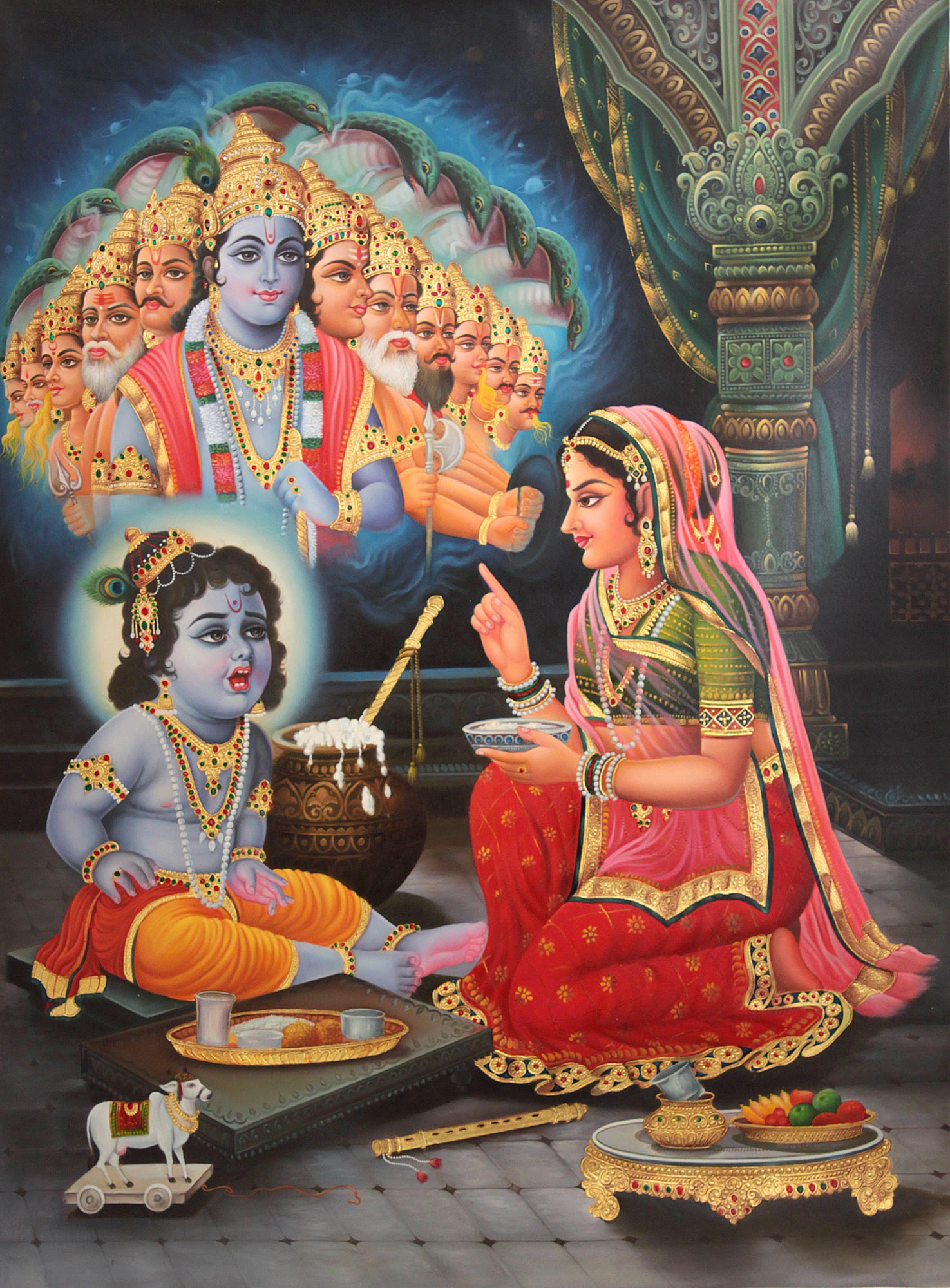 Any amount of discussion of would not provide safety for women. They have to take more precautions in their movements. Not only each person has freedom of speech, freedom of action, and freedom of movement, but each person has the responsibility to appropriate measures to protect themselves to ensure his safety. One has to be cognizant the ancient wisdom that whether leaf hits the thorn, or a thorn hits the leaf, it is leaf that will be affected or damaged. No amount of discussion on freedom will protect women unless they take appropriate responsibility to secure their safety. Everybody has to operate within certain limitations and should conduct himself or herself as a role model for others.
Any amount of discussion of would not provide safety for women. They have to take more precautions in their movements. Not only each person has freedom of speech, freedom of action, and freedom of movement, but each person has the responsibility to appropriate measures to protect themselves to ensure his safety. One has to be cognizant the ancient wisdom that whether leaf hits the thorn, or a thorn hits the leaf, it is leaf that will be affected or damaged. No amount of discussion on freedom will protect women unless they take appropriate responsibility to secure their safety. Everybody has to operate within certain limitations and should conduct himself or herself as a role model for others.
As Jason Hardaway argues that, “Freedom without responsibility is self-centeredness and leads to chaotic breakdown of society and the loss of freedom. Every action or decision has its consequences. Without taking responsibility for our actions and decisions as an individual and dealing with those consequences, then the community or more likely the government will have to deal with those consequences.” Whenever government enters into the picture, there would be loss of freedom. It is the responsibility of every citizen of the world to protect his/her safety and welfare. One has to recognize that there are limitations and boundaries surrounding freedom. We need to acknowledge and operate within these borders.
Vedic Period
During Vedic Period, women enjoyed greater freedom along with men and her sphere of relationships were not circumscribed by too many restrictions. She was mistress of the household and in charge of finances of the family. They were allowed to have separate property, which was called as Stridhan with full control. In those days, both boys and girls were allowed to perform upanayanam. Many of them were highly educated and were given opportunity to have intellectual discussions with the scholars. Gargi, Gosha, Apala, Lopamudra, Indrani, Maitreyi and others were recognized as highly educated who engaged in scholarly discussions.
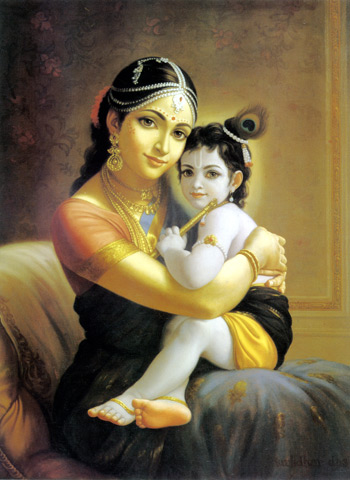 Romesh C Dutt, assessed the status of women during the Vedic period and concluded: "Women were held in higher respect in India than in other ancient countries, and the Epics and old literature of India assign a higher position to them than the epics and literature of ancient Greece. Hindu women enjoyed some rights of property from the Vedic Age, took a share in social and religious rites, and were sometimes distinguished by their learning. The absolute seclusion of women in India was unknown in ancient times."
Romesh C Dutt, assessed the status of women during the Vedic period and concluded: "Women were held in higher respect in India than in other ancient countries, and the Epics and old literature of India assign a higher position to them than the epics and literature of ancient Greece. Hindu women enjoyed some rights of property from the Vedic Age, took a share in social and religious rites, and were sometimes distinguished by their learning. The absolute seclusion of women in India was unknown in ancient times."
Will Durant (1885-1981) American historian says: "Women enjoyed far greater freedom in the Vedic period than in later India. She had more to say in the choice of her mate than the forms of marriage might suggest. She appeared freely at feasts and dances, and joined with men in religious sacrifice. She could study, and like Gargi, engage in philosophical disputation. If she was left a widow there were no restrictions upon her remarriage."
Women showed courage, fortitude, daring, bravery, strength and gallantry all though our Indian history over the last ten centuries and also during Indian freedom movement. Many have sacrificed their life to protect the life, liberty and freedom for their next generation.
Famous Women of Ancient and Modern India
Rani Avantibai, Bhagini Nivedita, Durgavati, Jalkari Bai, Mother Mirra, Savitri, Ahilya Bai Holkar, Anne Besant, Shakuntala Devi, Kittur Rani Chennamma; Sarojini Naidu, Akka Mahadevi, Rani of Jhansi, Sarada Devi, Sita Devi, Draupadi and many women in Itihasas and in modern times have showed exemplary courage, sacrificed their lives and performed amazing service to the society
Modern education should concentrate on respecting the women, the ethical and moral roles they can play to uphold the family unity, and societal integrity. We should not forget to teach women how to manage the peaceful, efficient, and happy home. Housewife is the center of the house; she is glue that can bring all members together and a divine being who can create positive vibrations to bring happiness in the family.
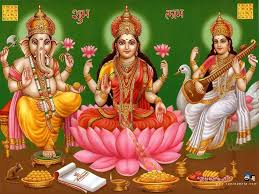 Hinduism is the only religion that respects, worships and emulates the characteristics and qualities of women as goddess. Goddess worship is alien to other religions. We worship them for knowledge, wealth, health, auspiciousness, courage, strength, intelligence, and harmony. We worship Saraswati for knowledge and intelligence, Lakshmi for wealth and prosperity, and Parvati in her different manifestations for bravery, auspiciousness, goodness and love. Moreover, the reason why the concept of the Divine Mother and Sacred Feminine is unique to India is because while she was burnt at the stake, mutilated and destroyed by other civilizations, she was preserved and protected in the heartland of India as Bhudevi (the earth goddess), as Lakshmi (goddess of wealth), as Durga (warrior goddess of strength), as Saraswati (goddess of knowledge and creativity), as Kali (Goddess of Time) as Aditi (mother of the universe) and as Bhairavi (goddess of speech), to name but a few. In fact we call the country Bharat Mata or Mother India, highest respect any country has given to its native land.
Hinduism is the only religion that respects, worships and emulates the characteristics and qualities of women as goddess. Goddess worship is alien to other religions. We worship them for knowledge, wealth, health, auspiciousness, courage, strength, intelligence, and harmony. We worship Saraswati for knowledge and intelligence, Lakshmi for wealth and prosperity, and Parvati in her different manifestations for bravery, auspiciousness, goodness and love. Moreover, the reason why the concept of the Divine Mother and Sacred Feminine is unique to India is because while she was burnt at the stake, mutilated and destroyed by other civilizations, she was preserved and protected in the heartland of India as Bhudevi (the earth goddess), as Lakshmi (goddess of wealth), as Durga (warrior goddess of strength), as Saraswati (goddess of knowledge and creativity), as Kali (Goddess of Time) as Aditi (mother of the universe) and as Bhairavi (goddess of speech), to name but a few. In fact we call the country Bharat Mata or Mother India, highest respect any country has given to its native land.
Unlike other religions, Hinduism is the only tradition that treats male and female as equal partners, and both working hand in hand to preserve the family. In fact this concept lead to a logical expression in the form of Ardhanareeswari where Parvati and Shiva are in fusion. Each partner compliments and supports the other. One part is not complete without the other. Whenever we do any pujas, an unmarried man or women cannot do certain pujas. Both have to be present to do certain rituals to get the full benefit of any deed. Brihadaranyaka Upanishad states, “He (the divine person) divided Himself two halves: thus was the origin of husband and wife. Therefore, this (the body of man) is only like the one half of a split pea.”Swami Vivekananda’s explication of the relationship between Rama and Sita is the answer for to address the troubled waters in the society. According to him: ‘Rama was the Paramatman and Sita was the Jivatman, and each man’s or woman’s body was the Lanka. … The Jivatman which was enclosed in the body, or captured in the island of Lanka, always desired to be in affinity with the Paramatman, or Shri Rama.”
Similar relationship between wife and husband is aptly described in Atharvana Veda (14.2.71):
I am He, you are She; I am Song, you are Verse, I am Heaven, you are Earth. We two shall here together dwell, becoming parents of children.
Role of Women
Women is worshipped in the form of Divine Mother and treated as the first Guru. Manu says, “From the point of view of reverence, a teacher (Guru) is tenfold superior to a mere lecturer, a father hundred fold to a guru, and a mother a thousand fold to a father.”
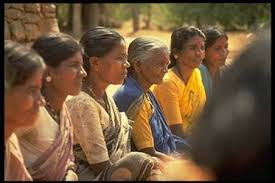 Manu accords high regard for women and is an admirer of the role women play in the household and as the keeper of harmony and integrity in the family. At the same time, Manu was also very skeptical of women as sinful, chenchal and untrustworthy. Hence he advocated the protection of women all through her life. During her child hood, her father, once married by her husband and in old age by her son, should protect her. Manu was giving more importance to the security, safety and protection of women rather than unlimited freedom. It is believed the society is more prosperous and happy where women are happy.
Manu accords high regard for women and is an admirer of the role women play in the household and as the keeper of harmony and integrity in the family. At the same time, Manu was also very skeptical of women as sinful, chenchal and untrustworthy. Hence he advocated the protection of women all through her life. During her child hood, her father, once married by her husband and in old age by her son, should protect her. Manu was giving more importance to the security, safety and protection of women rather than unlimited freedom. It is believed the society is more prosperous and happy where women are happy.
According to Manu, where women are respect, Gods are rejoiced. He writes:
"Women must be honored and adorned by their fathers, brothers, husbands and brothers-in-law, who desire their own welfare." (Manu Smriti III, 55)
“Where women are honored there the gods are pleased; but where they are not honored no sacred rite yields rewards," Manu Smriti (III.56).
" Where the female relations live in grief, the family soon wholly perishes; but that family where they are not unhappy ever prospers." (Manu Smriti III, 57).
"The houses on which female relations, not being duly honored, pronounce a curse perish completely as if destroyed by magic." (Manu Smriti III, 58)
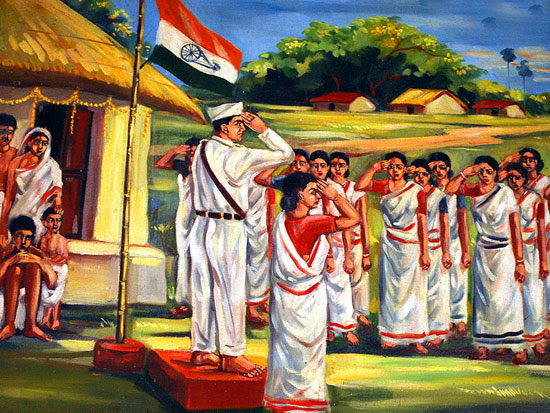 Swami Vivekananda says that women should not jump from the security cover provided to her. However, by no means does it mean that Manu is anti-women's lib. This only implies that the first social requirement of women is security which may be provided to her by the State's law and order machinery or some man or by her own valor. “Her own valor, more often than not, fails to protect her in a world dominated by sensual dacoits have required male protection and patronage. However, it will not be proper to assess Manu's contentions in the present day political perspective. Today there is a law-enforcing government and yet thousands of women have been criminally assaulted and thus compelled to go to dogs. Rape and subsequent killing of women is the order of the day and the rule of law is rendered ineffectual.”.
Swami Vivekananda says that women should not jump from the security cover provided to her. However, by no means does it mean that Manu is anti-women's lib. This only implies that the first social requirement of women is security which may be provided to her by the State's law and order machinery or some man or by her own valor. “Her own valor, more often than not, fails to protect her in a world dominated by sensual dacoits have required male protection and patronage. However, it will not be proper to assess Manu's contentions in the present day political perspective. Today there is a law-enforcing government and yet thousands of women have been criminally assaulted and thus compelled to go to dogs. Rape and subsequent killing of women is the order of the day and the rule of law is rendered ineffectual.”.
Women were accorded high status in the Vedic period. They enjoyed full freedom and were considered the backbone of the society. They were considered to possess enormous power, potential and valor to support and protect the society. Society will be prosperous and harmonious only when women are treated with respect and dignity.
Role of Wife
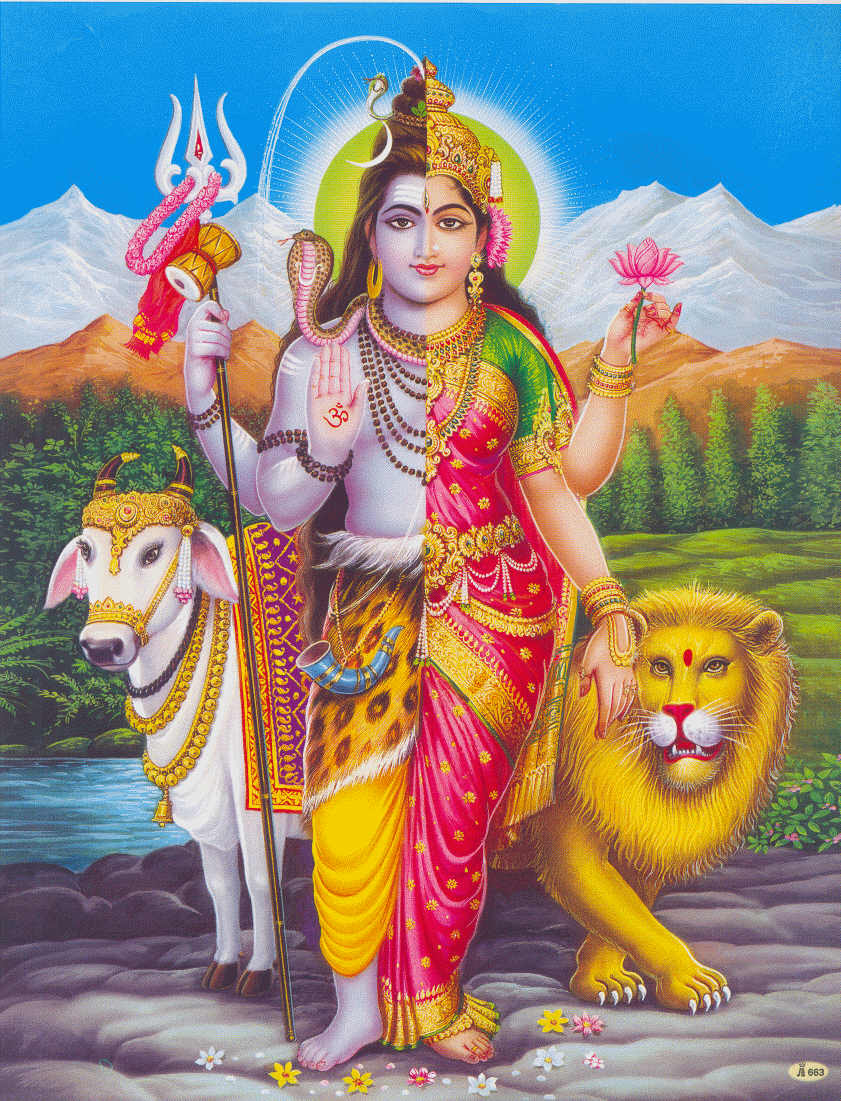 Hindu tradition has accepted and upheld the virtue that a happy family is essential for the welfare of the society. Housewife is the backbone to maintain the household in peace and harmony. We should never forget the greatness of the women in India’s past. The ideals of self-sacrifice, chastity, purity, modesty, simplicity, compassion, divinity and humility have shaped the character, personality and ethics of women for ages in Hindu tradition. That is the nature, the innate character of a woman. There is a tendency in the present modern society let loose the innate nature of women as influenced by the modern ideology of freedom, equality and independence.
Hindu tradition has accepted and upheld the virtue that a happy family is essential for the welfare of the society. Housewife is the backbone to maintain the household in peace and harmony. We should never forget the greatness of the women in India’s past. The ideals of self-sacrifice, chastity, purity, modesty, simplicity, compassion, divinity and humility have shaped the character, personality and ethics of women for ages in Hindu tradition. That is the nature, the innate character of a woman. There is a tendency in the present modern society let loose the innate nature of women as influenced by the modern ideology of freedom, equality and independence.
Wife role has been respected, appreciated and valued in many of Hindu scriptures. She was considered a friend, counsel and companion to her husband. Sita was considered the role model for all Hindu women. She always wanted to share the troubles her husband faced instead of enjoying the comforts. She was willing to sleep on the bare ground with scorpions, worms, mosquitoes, and gnats as constant nuisances. She wanted to accompany her husbad by saying, "O Rama, all these hardships will seem like blessings to me. If You protect me, I can tolerate anything."
To quote Swami Vivekananda in this context: ‘you may exhaust the literature of the world that is past, and … future, before finding another Sita. Sita is unique; that character was depicted once and for all. There may have been several Ramas, perhaps, but never more than one Sita! She is the very type of the true Indian woman, for all the Indian ideals of a perfected woman have grown out of that one life of Sita.’
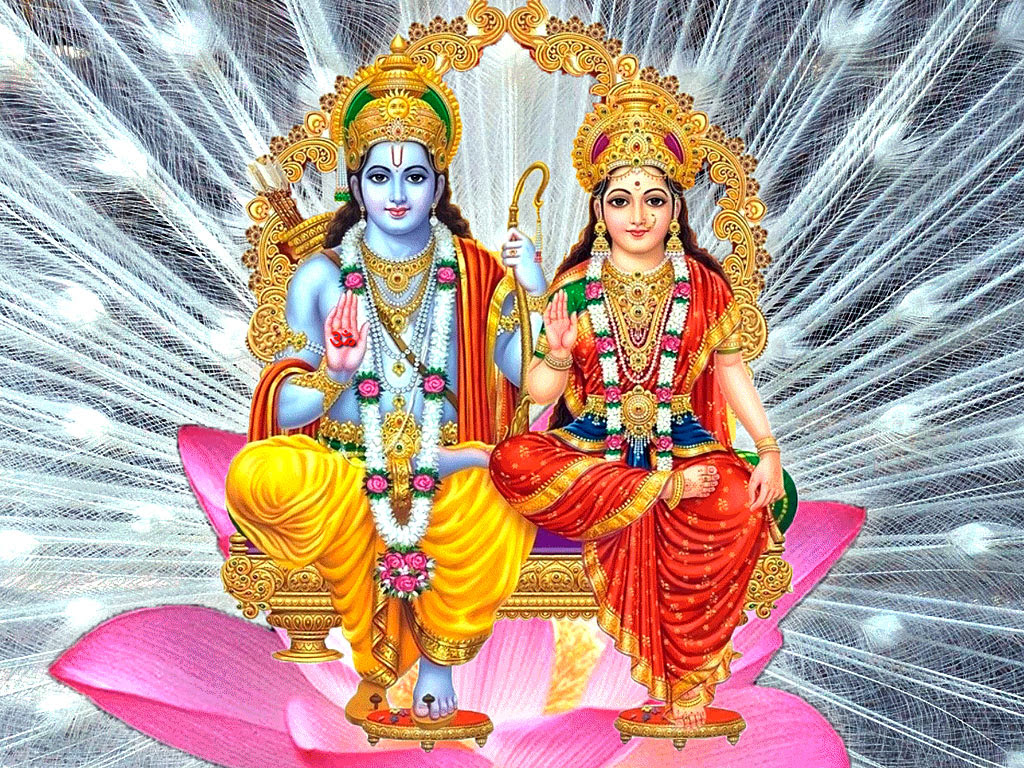 Lord Rama appreciated the companionship of Sita when he was separated by the abduction of her by Ravana. Rama recollected how she had always stood by him and assisted him at various junctures in life: “She was like effective medicine during sickness. She was a delightful companion at play, an able wife when I performed dharmic rituals like the Agnihotra, a valorous associate when I fought with enemies, an efficient disciple when I performed duties to be discharged with reference to Gods and my dead ancestors, and a companion in times of distress. It is such a Sita that I am separated from today.”
Lord Rama appreciated the companionship of Sita when he was separated by the abduction of her by Ravana. Rama recollected how she had always stood by him and assisted him at various junctures in life: “She was like effective medicine during sickness. She was a delightful companion at play, an able wife when I performed dharmic rituals like the Agnihotra, a valorous associate when I fought with enemies, an efficient disciple when I performed duties to be discharged with reference to Gods and my dead ancestors, and a companion in times of distress. It is such a Sita that I am separated from today.”
On the one hand, Sita is thus held up as a repository of traits worth emulating, while on the other hand, questions are sometimes raised about the efficacy of her role and attitudes. She is sometimes venerated as the noblest form of woman and in other versions considered as oppressed, enfeebled, and pitiful.
Mahabharata says "There is no friend like the wife, there is no refuge better than the wife. There is no better ally in the world than the wife in acts undertaken for acquisition of dharmic merit (Shanti Parva 144-16). She is a true wife who is skillful in household affairs. She is a true wife who has borne a son. She is a true wife whose heart is devoted to her lord (husband). She is a true wife who knows none but her lord. The wife is a man’s half. The wife is the first of friends. The wife is the root of religion, profit and desire. The wife is the root of salvation. They that have wives can perform religious acts.”
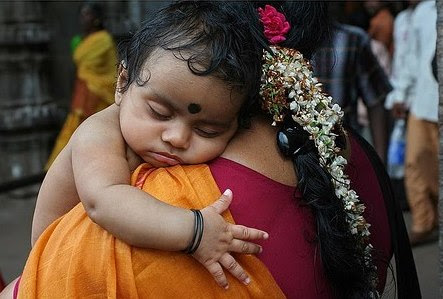 Mother is considered the pillar of Hindu family; pinnacle of sacrifice; embodiment of love, affection and compassion; source of inspiration and encouragement; personification of peace and harmony; foundation of strength and courage; epitome of age-old wisdom and prudence, hallmark of patience and endurance; quintessence of solace and comfort; exemplification of kindness and gentleness; reservoir of inexhaustible blessings; and personification of patience and tolerance.
Mother is considered the pillar of Hindu family; pinnacle of sacrifice; embodiment of love, affection and compassion; source of inspiration and encouragement; personification of peace and harmony; foundation of strength and courage; epitome of age-old wisdom and prudence, hallmark of patience and endurance; quintessence of solace and comfort; exemplification of kindness and gentleness; reservoir of inexhaustible blessings; and personification of patience and tolerance.
How can we forget the forbearance of mother who conceived us and carried us for nine months in her womb; suffered months of morning sickness; saw us grow day by day; fed us through the tube; allowed us to take shape as we develop backbone, skin, fingers, nails, eye lids, eye brows, nose, ears, hands, legs, toes, heart, head, brain, and so on for nine months; and carried all the weight all these months; endured all the sounds and kicking; spent countless nights without sleep; withstood all the discomforts; and finally gave birth. How can we forget the mother’s endurance and tenacity during those nine months?
How can forget mothers anxious mothers first look at the baby in spite of all the pain and suffering during the delivery; her instant motherly instinct to hold him and caress him; her longing to feed the baby; her excitement to hear the sounds of her infant; her delight in putting him to the bed; her constant vigil of looking at the sleeping bay; her thrill at looking the baby crawl and walk; her prompting at baby to talk; her enjoyment of feeding the baby; her constant concern for the safety of the child; her passion to narrate bedtime stories; and countless efforts to make the child grow with confidence, trust and love. Who can forget and how can we forget?
Hindu religion has given her exalted position compared to any other religion. Matru Devo bhava is the dictum no body can forget. Mother is divine. It is important to remember that only Hindus worship God in the form of Divine Mother. In Hinduism we have Sri Lakshmi, goddess of wealth, Saraswati the goddess of learning and knowledge, Parvati goddess who bestows women with long married life, and Kali, the power of time and other goddesses who protected the human race from demonic forces. Women as goddesses are worshipped in all religious festivals. During Navaratri time, different manifestations of Devi are worshipped for ten days. And no function is complete without the participation of women as mother. The social inconsistencies and injustices in the role of women did not arise from Hindu scriptures, but from the external forces that that constrained the movement of women as well as the foreign rule that forced women to take a protective role. Many Hindu scriptures accorded the high regard and the highest status to women.
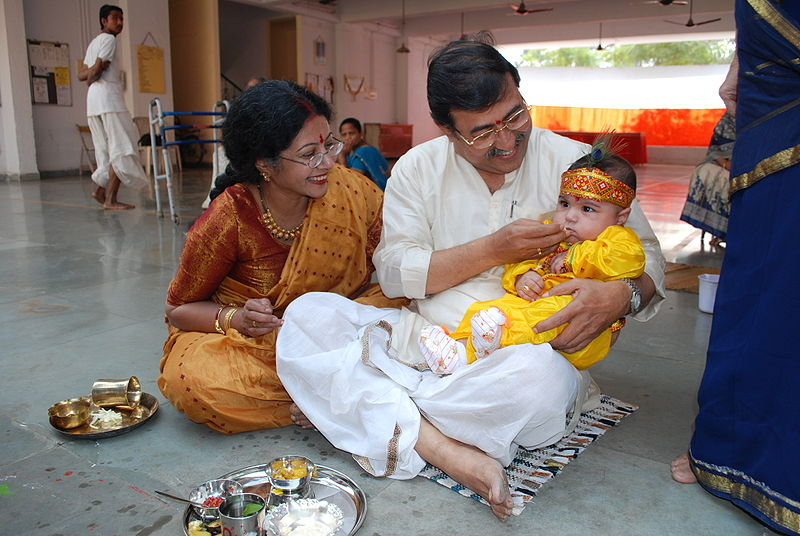 Bhishmacharya in Mahabharata says, “The mother is the panacea for all kinds of calamities. The existence of the mother invests one with protection; the reverse deprives one of all protection. The man who, though divested of prosperity enters his house, uttering the words, "O mother!"- has not to indulge in grief. Nor does decrepitude ever assail him. A person whose mother exists, even if he happens to be possessed of sons and grandsons and even he himself is hundred years old, but in the eyes of his mother he looks like a child of two years of age. Whether the mother is able or disabled, lean or robust, the son is always protected by the mother. None else, according to the ordinance, is the son’s protector. Then does the son become old, then does he become stricken with grief, then does the world look empty in his eyes, when he becomes deprived of his mother. There is no shelter like the mother. There is no refuge like the mother. There is no defense like the mother. There is no one so dear as the mother. For having borne him in her womb the mother is the son’s dhatri. For having been the chief cause of his birth, she is his janani. For having nursed his young limbs, she is calledamva (Amma). For nursing and looking after the son she is called sura. The mother is one’s own body.”
Bhishmacharya in Mahabharata says, “The mother is the panacea for all kinds of calamities. The existence of the mother invests one with protection; the reverse deprives one of all protection. The man who, though divested of prosperity enters his house, uttering the words, "O mother!"- has not to indulge in grief. Nor does decrepitude ever assail him. A person whose mother exists, even if he happens to be possessed of sons and grandsons and even he himself is hundred years old, but in the eyes of his mother he looks like a child of two years of age. Whether the mother is able or disabled, lean or robust, the son is always protected by the mother. None else, according to the ordinance, is the son’s protector. Then does the son become old, then does he become stricken with grief, then does the world look empty in his eyes, when he becomes deprived of his mother. There is no shelter like the mother. There is no refuge like the mother. There is no defense like the mother. There is no one so dear as the mother. For having borne him in her womb the mother is the son’s dhatri. For having been the chief cause of his birth, she is his janani. For having nursed his young limbs, she is calledamva (Amma). For nursing and looking after the son she is called sura. The mother is one’s own body.”
Vedas have also addressed the contribution of Mother. The prosperity, well-being and success of any society depend on the respect women are accorded. Women are described to possess innate qualities that guide the society, unlimited patience to preserve the family, and endowed with compassion to shower blessings to the humanity.
Rigveda 6.61.7: O enlightening Mother! You have the potential to destroy the evil. You have a character as pure as gold. You have the potential to destroy the clouds of frustrations and doubt. You are brave and you only aspire for our well being and success! We are indeed blessed!
Yajurveda 6.31: O pure and blessing Mothers! Satisfy our mind, speech, life, eyes, ears, soul and society with nobleness.
Yajurveda 11.68: O Mother! Protect us from infighting. Protect us from violence and hatred. Propel us to conduct noble acts of valor. May we together conduct virtuous acts alone.
Shankara Bhagavadpada on Mother
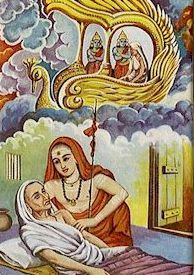 Adi Shankara wanted to take up Sanyasa at a tender age. Mother refused. But he convinced her that he would be present at her deathbed no matter where he was. Later on, when he realized that her mother was on deathbed, with his divine powers he appeared instantly near his mother, who died just before he arrived. He performed her funeral ceremony. At that time he was supposed to have written “Matru Panchakam” paying a tribute that would bring tears to any son or daughter who reads or listen to it. Nothing surpasses this moving tribute to a mother. This is the only composition Shankara made on a human being. Shankara never composed any slokas other than on Gods and Goddesses except Matru Panchakam, which contains five verses appreciating the mother’s compassion.
Adi Shankara wanted to take up Sanyasa at a tender age. Mother refused. But he convinced her that he would be present at her deathbed no matter where he was. Later on, when he realized that her mother was on deathbed, with his divine powers he appeared instantly near his mother, who died just before he arrived. He performed her funeral ceremony. At that time he was supposed to have written “Matru Panchakam” paying a tribute that would bring tears to any son or daughter who reads or listen to it. Nothing surpasses this moving tribute to a mother. This is the only composition Shankara made on a human being. Shankara never composed any slokas other than on Gods and Goddesses except Matru Panchakam, which contains five verses appreciating the mother’s compassion.
Suffice it to read the first verse of Adi Shankara where he expresses the agony, pain and anguish mothers go through when they bore their children. Nowhere do we read such emotional, touching and passionate description of mother’s experience of the first year of bearing their children by Adi Shankara.
Oh mother mine, With clenched teeth bore thou the excruciating pain, When I was born to you, Shared thou the bed made dirty by me for an year, And thine body became thin and painfull, During those nine months that you bore me, For all these in return, Oh mother dearest, I can never compensate, Even by my becoming great.
Let us remember the role women played over the centuries in various capacities across the globe, how they have preserved the indigenous cultures, how they maintained the family responsibilities, how they fought and protected their countries, how they are contributing to the economy and well being of the societies, and how they can achieve the economic parity with men. In Hindu religion, women have played significant role as wife and mother in preserving and protecting the family. Many scriptures have documented their unparalleled contribution in preserving the families. In fact she was so respected and revered in Hindu religion, she is equated with Goddess – Matru Devo Bhava. No country can come close to the status women have received in India. All the problems women are facing in India and all around today should be addressed by looking back at the roots that revered the position of women and chart out the future to provide the safety and security to women. All the families, educational institutions, religious institutions and political institutions must make every effort to instill, transmit and revitalize the traditional respect Hinduism has accorded to the women and inculcate the moral values found in ancient scriptures to redress the present day ills.
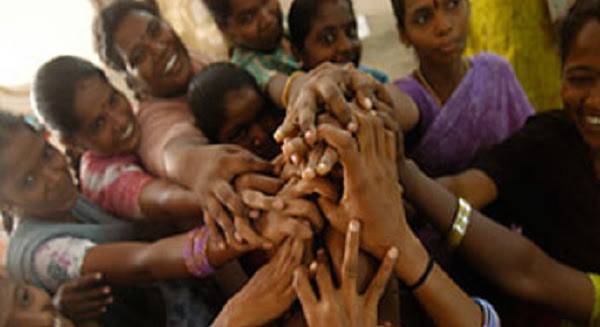
(This is an expanded version of the speech delivered on International Women's Day at Karya Siddhi Hanuman Temple, Frisco, TX, USA in March 2015)
Donations
As many of you know that SaveTemple Office was opened in June 2012 in Hyderabad. Office is located in Khairatabad. Four full time employees are working on the update of our website, Aalayavani Web Radio, Aalayavani magazine, conducting various activities to preserve and protect Hindu Temples and Culture. Our budget is approximately 2 lakh rupees per month. We request your generous donation to conduct activities to promote unity among Hindus and restore the glory of Hinduism.
Please DONATE. Your donations are appreciated to continue the work.
NOTE: GHHF is exempt from federal income tax under section 501 (c) 3 of the Internal Revenue code. Our tax ID # 41-2258630
Please send your tax-deductible donations to:
Global Hindu Heritage Foundation, 14726 Harmony Lane, Frisco, Texas 75035
GHHF Board of Directors:
Prakasarao Velagapudi PhD, (601-918-7111 cell), (601-856-4783 home); Prasad Yalamanchi (630-832-2665; 630-359-5041); Satya Dosapati (732-939-2060); Satya Nemana (732-762-7104); Sekhar Reddy (954-895-1947); Vinay Boppana (248-842-6964); Tulasichand Tummala (408-786-8357); Raju Polavaram, MD (919-959-6141); Nandini Velagapudi, PhD (601-942-2248); Rama Kasibhatla (678-570-1151); Shankar Adusumilli MD (919-961-9584); Sireesha Muppalla (631-421-8686); Prasad Garimella MD (770-595-8033); Raghavendra Prasad MD (214-325-1969); Murali Alloju MD (703-953-1122); Veeraiah Choudary Perni MD (330-646-8004); Vishnu Kalidindi MD; Srivas Chebrolu MD; Avadesh Agarwal; Sudheer Gurram MD; Rajendrarao Gavini MD; Srinath Vattam MD; and Dr. Ghazal Srinivas, Honorary Brand Ambassador.
GHHF Dallas Core Group
Mahesh Rao Choppa (732-429-5217); ); Srinivas Pamidimukkala (832-444-6460); Gopal Ponangi (214-868-7538); Ram Yalamanchili (214-663-6363); Ravi Pattisam (617-304-3577); Krishna Athota (214-912-3724); Sesharao Boddu (972-489-6949}; P. Viswanadham, PhD (972-355-7107); I V Rao (214-284-6227); Rajesh Veerapaneni (773-704-0405); Sunil T Patel (214-293-4740); Vijay Kollapaneni (818-325-9576); Ghanashyam Kakadia (469-583-1682); R K Panditi (972-516-8325); Viswas Mudigonda (972-814-5961); Srikanth Akula (952-334-9990); Kalyan Jarajapu (972-896-8352); Sitaram Panchagnula (714-322-3430); Vasanth Suri (408-239-3436); Phani Aduri (214-774-2139); Konda Srikanth (214-500-5890); Siva Agnoor (214-542-661).











